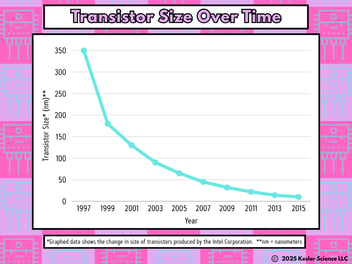Hot Peppers and Artificial Selection - Kesler Science Weekly Phenomenon and Graph
The world of hot peppers is WILD. In 2007, the hybrid Ghost pepper from India was the hottest pepper in the world. It was dethroned by the infamous Carolina Reaper pepper in 2013. In October 2023, a new pepper called "Pepper X" claimed the world title - it's about 1000 times hotter than a jalapeno! 🥵
This is a great connection to artificial selection that students might enjoy because of shows like Hot Ones. Who doesn't like to watch celebrities cry over their chicken wings? 😆 Using the same process that brought us goldendoodles, pepper growers create hybrid varieties of peppers that combine the best characteristics of two types of peppers. They also select the hottest peppers from one generation and keep those seeds to grow the next generation. It takes about 10 generations before an unusual pepper trait, like extreme heat, becomes a consistent trait in the population.
Check out the graph below to see how artificial selection has affected the heat levels of peppers!
.png?width=640&height=480&name=Heat%20of%20Peppers%20in%20Scoville%20Heat%20Units(2).png)
If I were going to share this graph with my students, here are some questions I might ask them:
💡Which peppers have less than 1 million Scoville heat units?
💡About what is the difference in heat units between Trinidad Moruga Scorpion pepper and Pepper X?
💡How do Habanero Chilis compare to the Carolina Reaper in spiciness?
There is a free student worksheet--with answers--available for this graph!
Just join the amazing Kesler Science newsletter to get access - plus we'll send you other great freebies, sales info, product highlights, and more great stuff!

.png?width=352&name=Fiber%20length%20(1).png)

